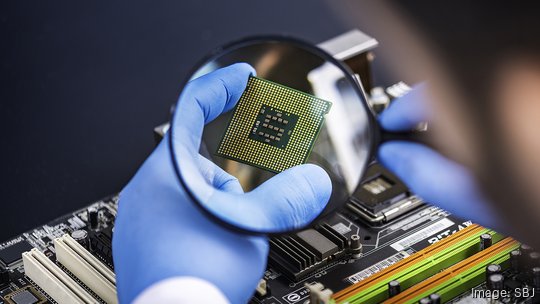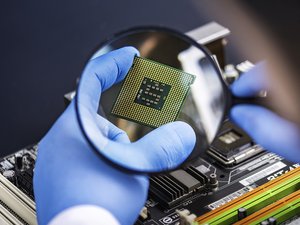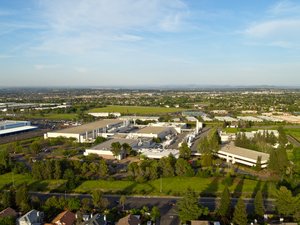
The local effort to receive federal funding for a Tech Hub at California State University Sacramento didn’t make the cut.
Nearly 400 groups around the country sought U.S. Economic Development Administration Tech Hub designations, and 31 groups were announced as finalists today, none of them in California. Local leaders wanted a Tech Hub at Sac State for zero-emission vehicle technologies.
"We are disappointed to learn the Sacramento region wasn’t selected for an EDA Tech Hub designation, but we feel positive momentum going into 2024 with private sector partners support that we didn’t have before including Tesla, Lion Electric, Bosch, Siemens, Rivian and others," said Barry Broome, CEO of the Greater Sacramento Economic Council.
Under the Tech Hubs program, local teams could apply to get between $40 million and $70 million each to manufacture, commercialize and deploy new clean technologies.
Sacramento’s application sought to bolster the work of the California Mobility Center — which is supported by Sac State, Greater Sacramento Economic Council and the Sacramento Municipal Utility District — to develop technologies for electric transportation of the future.
Sacramento’s Tech Hub application included support letters from Tesla Inc., Bosch and Siemens AG, among others.
The Tech Hub program is a part of the Creating Helpful Incentives to Produce Semiconductors and Science Act of 2022, also known as the CHIPS Act, which includes establishing 20 Tech Hubs around the country funded by a total appropriation of about $500 million in federal money. The CHIPS Act itself is meant to increase manufacturing and research of semiconductors in the United States.
The 31 Tech Hubs selected are in Alabama, Colorado, Delaware, Florida, Georgia, Idaho, Illinois, Indiana, Kansas, Louisiana, Maine, Maryland, Massachusetts, Minnesota, Missouri, Montana, Nevada, New Hampshire, New Jersey, New York, Ohio, Oklahoma, Oregon, Pennsylvania, Puerto Rico, Rhode Island, South Carolina, Vermont, Virginia, Washington, Wisconsin and Wyoming.
The closest Tech Hub designee is a proposal from the University of Nevada Reno for a Tech Hub in Reno and Carson City for the Nevada Lithium Batteries and Other EV Material Loop.
In addition to the Tech Hubs, the Economic Development Administration also designated 27 Strategy Development Grant recipients. The only one of those in California was awarded to the Lithium Valley Clean Tech Strategy Development Consortium, a proposal submitted by the University of California Riverside for lithium battery supply chain and recycling.
“These Tech Hubs will catalyze investment in technologies critical to economic growth, national security, and job creation, and will help communities across the country become centers of innovation critical to American competitiveness,” the White House said Monday in an emailed statement.
The Tech Hubs that made the cut include industries such as autonomous systems, quantum computing, biotechnology, precision medicine, clean energy advancement, semiconductor manufacturing and others.
Sacramento submitted its application for a Tech Hub in August.
Local leaders still believe Sacramento should be home to a zero-emission vehicle technology institute based around the California Mobility Center since the standards being implemented by state policymakers in the capital are mandating the world’s most aggressive zero-carbon transportation goals. Those include banning the sale of new carbon-emitting cars by 2035 and big rig trucks by 2036.
"All this work will help us continue to put the best project forward for Sacramento State and the region towards future mobility, especially with our new CEO at the helm of the California Mobility Center. Looking forward to working with congressional, state, and local leaders to get this project built and bring more innovation to the area,” Broome said.
Orville Thomas was named last month as the new CEO of the California Mobility Center, where he will lead the effort to build a global $500 million zero-emission innovation hub at California State University Sacramento. He starts next month.
The technology behind zero-emission vehicles isn’t just restricted to transforming transportation. It also has applications in clean energy, power engineering, battery advancement and all sorts of electrical grid technologies and advancements.







